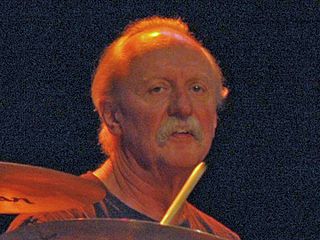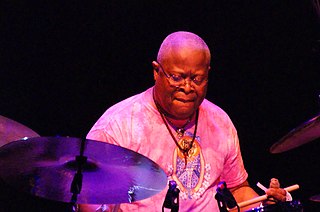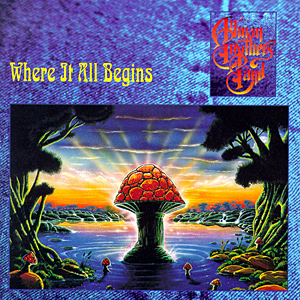Related Research Articles

The Allman Brothers Band was an American rock band formed in Jacksonville, Florida, in 1969 by brothers Duane Allman and Gregg Allman, as well as Dickey Betts, Berry Oakley (bass), Butch Trucks (drums), and Jai Johanny "Jaimoe" Johanson (drums). Subsequently, based in Macon, Georgia, they incorporated elements of blues, jazz and country music and their live shows featured jam band-style improvisation and instrumentals.

Southern rock is a subgenre of rock music and a genre of Americana. It developed in the Southern United States from rock and roll, country music, and blues and is focused generally on electric guitars and vocals. Author Scott B. Bomar speculates the term "Southern rock" may have been coined in 1972 by Mo Slotin, writing for Atlanta's underground paper, The Great Speckled Bird, in a review of an Allman Brothers Band concert.

Gregory LeNoir Allman was an American musician, singer and songwriter. He was known for performing in the Allman Brothers Band. Allman grew up with an interest in rhythm and blues music, and the Allman Brothers Band fused it with rock music, jazz, and country at times. He wrote several of the band's most popular songs, including "Whipping Post", "Melissa", and "Midnight Rider". Allman also had a successful solo career, releasing seven studio albums. He was born and spent much of his childhood in Nashville, Tennessee, before relocating to Daytona Beach, Florida and then Macon, Georgia.

Claude Hudson "Butch" Trucks was an American drummer. He was best known as a founding member of The Allman Brothers Band, for which he was inducted into the Rock and Roll Hall of Fame in 1995. Trucks was born and raised in Jacksonville, Florida.
The Volunteer Jam is a sporadically-held concert series headlined by the Charlie Daniels Band, featuring a multitude of musical acts that perform onstage with the band. It was first held on October 4, 1974, at the War Memorial Auditorium in Nashville, Tennessee.

Forrest Richard Betts was an American guitarist, singer, songwriter, composer and founding member of The Allman Brothers Band.

John Lee Johnson, frequently known by the stage names Jai Johanny Johanson and Jaimoe, is an American drummer and percussionist. He is best known as one of the founding members of the Allman Brothers Band and, with the death of Dickey Betts, is the last surviving original member of the band.

Brothers and Sisters is the fourth studio album by American rock band The Allman Brothers Band. Co-produced by Johnny Sandlin and the band, the album was released in August 1973 in the United States by Capricorn Records. Following the death of group leader Duane Allman in 1971, the Allman Brothers Band released Eat a Peach (1972), a hybrid studio/live album that became their biggest-selling album to date. Afterwards, the group purchased a farm in Juliette, Georgia, to become a "group hangout". However, bassist Berry Oakley was visibly suffering from the death of Duane, excessively drinking and consuming drugs. In November 1972, after nearly a year of severe depression, Oakley was killed in a motorcycle accident, making it the last album on which he played.

Win, Lose or Draw is the fifth studio album and sixth overall by American rock group the Allman Brothers Band. Produced by Johnny Sandlin and the band themselves, it was released on August 22, 1975 in the United States by Capricorn Records. It was the last studio album to feature bassist Lamar Williams and pianist Chuck Leavell.
Lamar Williams was an American musician best known for serving as the bassist of The Allman Brothers Band (1972–1976) and Sea Level (1976–1980).

Charles Alfred Leavell is an American musician. A member of the Allman Brothers Band throughout their commercial zenith in the 1970s, he subsequently became a founding member of the band Sea Level. He has served as the principal touring keyboardist and musical director of the Rolling Stones since 1982. As a session musician, Leavell has performed on every Rolling Stones studio album released since 1983 with the exception of Bridges to Babylon (1997). He has also toured and recorded with Eric Clapton, George Harrison, David Gilmour, Gov't Mule and John Mayer.

"Jessica" is an instrumental piece by American rock band the Allman Brothers Band, released in December 1973 as the second single from the group's fourth studio album, Brothers and Sisters (1973). Written by guitarist Dickey Betts, the song is a tribute to gypsy jazz guitarist Django Reinhardt, in that it was designed to be played using only two fingers on the left hand.

Sea Level was an American rock band from Macon, Georgia. Formed in 1976, the band was an offshoot of the Allman Brothers Band. Between 1977 and 1980, the band released five studio albums which incorporated elements of funk, blues and Latin music.
"In Memory of Elizabeth Reed" is an instrumental composition by the American group The Allman Brothers Band. It first appeared on their second studio album, Idlewild South (1970), released on Capricorn Records. The jazz-influenced piece was written by guitarist Dickey Betts, among his first writing credits for the group. Betts named it after a headstone he saw for Elizabeth Jones Reed Napier in Rose Hill Cemetery in the band's hometown of Macon, Georgia. Multiple versions of the composition have been recorded, with the version performed on the group's 1971 live album At Fillmore East generally considered the definitive rendition.

The Allman Brothers Band was an American rock band formed in Jacksonville, Florida, in 1969 by brothers Duane Allman and Gregg Allman, as well as Dickey Betts, Berry Oakley, Butch Trucks (drums), and Jai Johanny "Jaimoe" Johanson (drums). The band incorporated elements of Southern rock, blues, jazz, and country music, and their live shows featured jam band-style improvisation and instrumentals.

Nassau Coliseum: Uniondale, NY: 5/1/73 is a two-CD live album by the Allman Brothers Band. It was recorded at Nassau Coliseum in Uniondale, New York on May 1, 1973. The fourth archival concert release from the Allman Brothers Band Recording Company, it features the 1972 to 1976 lineup of the band – Gregg Allman, Dickey Betts, Chuck Leavell (piano), Lamar Williams (bass), Jaimoe (drums), and Butch Trucks (drums). It was released in 2005.
"Whipping Post" is a song by The Allman Brothers Band. Written by Gregg Allman, the five-minute studio version first appeared on their 1969 debut album The Allman Brothers Band. The song was regularly played live and was the basis for much longer and more intense performances. This was captured in the Allman Brothers' 1971 double live album At Fillmore East, where a 22-minute, 40-second rendition of the song takes up the entire final side. It was this recording that garnered "Whipping Post" spots on both the Rock and Roll Hall of Fame's 500 Songs that Shaped Rock and Roll list and Rolling Stone's list of "The 500 Greatest Songs of All Time", which wrote, "the song is best appreciated in the twenty-three-minute incarnation on At Fillmore East."

Where It All Begins is the eleventh studio album by the Allman Brothers Band. "No One to Run With" obtained the most album-oriented rock airplay, while "Soulshine", written by Warren Haynes, gained success as a concert and fan favorite. Gregg Allman also started to confront his substance abuse problems in the past on songs such as "All Night Train". The album sold considerably better than its predecessor, Shades of Two Worlds. In 1998, the album went Gold. Nevertheless, critical reception was weaker. This was also the last studio album the group recorded with original guitarist Dickey Betts.
"No One to Run With" is a song written by Dickey Betts and John Prestia and performed by The Allman Brothers Band. It was originally written around 1982, and then recorded as a demo by the group Betts, Hall, Leavell and Trucks around 1983. That group was unable to find a recording contract, and it would be over a decade before the song was rediscovered and recorded by the Allman Brothers.
References
- 1 2 3 4 Patoski, Joe Nick (1980). "Southern Rock". In Miller, Jim (ed.). The Rolling Stone Illustrated History of Rock & Roll (Revised and updated ed.). Random House/Rolling Stone Press Book. pp. 357–359. ISBN 0-394-73938-8.
- 1 2 3 4 5 6 7 8 9 Paul, Alan (2014). One Way Out: The Inside History of the Allman Brothers Band. New York: St. Martin's Press. pp. xx, 240, 261, 264. ISBN 978-1-250-04049-7.
- 1 2 3 4 5 6 7 King, Bill (January 13, 1983). "Chuck Leavell regrouping band without Allman". The Atlanta Constitution. p. 4-B – via Newspapers.com.
- 1 2 3 4 5 6 Budnick, Dean (2003). Jambands: The complete guide to the players, music & scene. San Francisco: Backbeat Books. pp. 4, 20. ISBN 0-87930-745-5.
- 1 2 3 Marsh, Dave; Swenson, John, eds. (1983). The New Rolling Stone Record Guide . Random House/Rolling Stone Press. pp. 214, 541–542. ISBN 0-394-72107-1.
- ↑ "Jimmy Hall: Discography". Allmusic. Retrieved May 5, 2022.
- ↑ Waddell, Ray (December 18, 1999). "Working for the Band: Manager Bert Holman". Billboard. p. 30.
- 1 2 3 4 5 Ziehli, Andy (August–September 2019). "Danny Parks Super Picker". Americana Gazette. pp. 10–13.
- 1 2 3 4 5 6 Freeman, Scott (April 15, 1983). "The Sound's Good and Hot, But the Band Needs a Name". The Macon News. The Macon Telegraph. p. 4 (Leisure) – via Newspapers.com.
- 1 2 Tunis, Walter (April 21, 1991). "David Goldflies' jazz vision". Lexington Herald-Leader. pp. C1, C7 – via Newspapers.com.
- 1 2 3 4 5 6 7 8 9 10 11 12 13 14 15 16 Leavell, Chuck; Craig, J. Marshall (2004). Between Rock And A Home Place. Dry Branch, Georgia: Evergreen Arts. pp. x, 260–264. ISBN 0-86554-975-3.
- 1 2 3 4 5 Himes, Geoffrey (January 27, 1983). "After the Allmans: Home to the Country". The Washington Post.
- ↑ "Top of the week: Chaka, Kaukonen, Allman alums". The Home News. Central New Jersey. January 27, 1983. p. 7 (On the Go!) – via Newspapers.com.
- ↑ "'Journey' launches busy concert month". The Herald-News. Clifton-Passaic, New Jersey. May 6, 1983. p. D-16 – via Newspapers.com.
- 1 2 3 4 5 6 Oermann, Robert K. (August 6, 1983). "Jimmy Hall Goes Solo At Bluebird". The Tennessean. p. 4-D – via Newspapers.com.
- ↑ Oermann, Robert K. (October 23, 1983). "Hot Rock Meltdown Friday". The Tennessean. p. 38 (Pennywhistle Press) – via Newspapers.com.
- 1 2 3 Brunot, Luc (September–October 2007). "Jimmy Hall: Wet Willie". Bands of Dixie.
- 1 2 Reason, Betsy (July 14, 1994). "The Allman Brothers live!". The Noblesville Ledger. p. A5 – via Newspapers.com.
- ↑ "Miller High Life Concerts at Merriweather Post Pavilion (advertisement)". The Baltimore Sun. June 24, 1984. p. L10 – via Newspapers.com.
- ↑ "Tonight in New York: Waterfront Rock". New York Daily News. July 11, 1984. p. 39 – via Newspapers.com.
- ↑ "Calendar of Events: In the Region: Music". The Courier-Journal. Louisville, Kentucky. July 27, 1984. p. B12 – via Newspapers.com.
- ↑ Wright, Jeb. "Betts, Hall, Leavell And Trucks – Live At The Coffee Pot 1983 MVD Entertainment Group". Classic Rock Revisited. Retrieved January 27, 2022.
- ↑ Dickens, Ted (September 11, 2009). "Wayback machine: Betts, Hall, Leavell and Trucks at the Coffee Pot, circa 1983". The Roanoke Times.